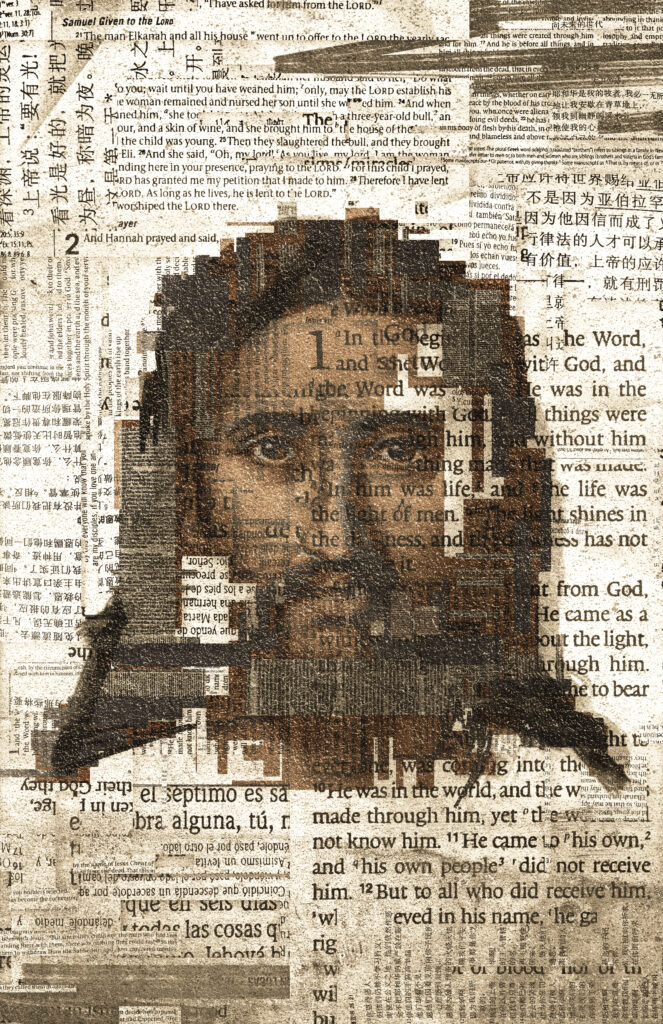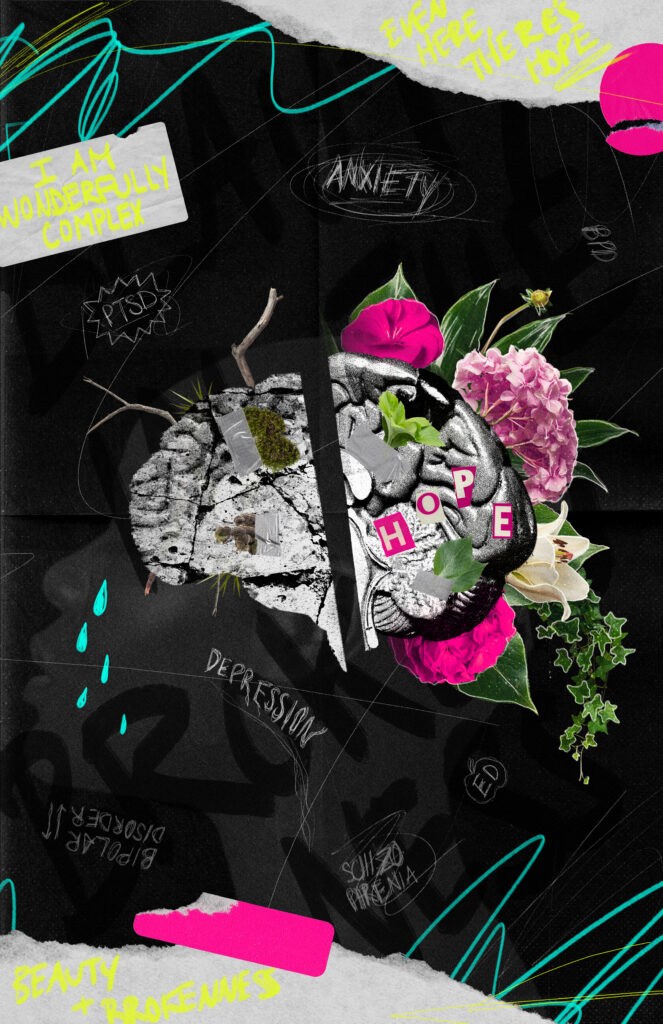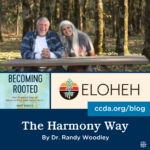

Welcome to #ccdaAdvent.
In the midst of darkness, oppression, and marginalization, Christ entered the scene of the first Advent and paved the way for our communal wellbeing. This Advent season, we invite you to consider the implications of Christ’s coming for our communities. What lessons may we draw from their context?
We are excited to partner with PAX and share with you their devotional, “Waiting with Imagination: An Advent Resource for Contemplative Activists.” Each devotional will include a reflection, breath prayer, art, and worship. We pray that the reflections and prayers within these Advent devotionals bring renewed inspiration, anticipation, and hope in the Kingdom of God that has come and is to come. Amen.


Devotional
Happy are those whose help is the God of Jacob,
whose hope is in the Lord their God,
who made heaven and earth,
the sea, and all that is in them;
who keeps faith forever;
who executes justice for the oppressed;
who gives food to the hungry.
The Lord sets the prisoners free;
the Lord opens the eyes of the blind.
The Lord lifts up those who are bowed down;
the Lord loves the righteous.
The Lord watches over the strangers;
he upholds the orphan and the widow,
but the way of the wicked he brings to ruin.
The Lord will reign forever,
your God, O Zion, for all generations.
Praise the Lord!
Psalm 146:5-10
From the personal to the political, we have been frustrated by those who have failed to meet our expectations. This is why, at the beginning of Psalm 146, the psalmist reminds us that to hope for justice from political leaders is to set ourselves up for disappointment.
Instead, we are called to place our hope in the God of Jacob, and to ground our hope in God’s character. God is a God of justice, whose character is displayed through actions such as executing justice for the oppressed, giving food to the hungry, setting the prisoners free, watching over the sojourner, and upholding the orphan and widow. That God will do these things is of rock-solid certainty, because God cannot go against his own character.
The psalmist’s use of the term God of Jacob reminds us to anchor our hope in God’s actions in history–particularly in the exodus. In his book God of the Oppressed, theologian James H. Cone explains:
In the Exodus event, God is revealed by means of acts on behalf of a weak and defenseless people. This is the God of power and of strength, able to destroy the enslaving power of the mighty Pharaoh . . . In the Exodus-Sinai tradition Yahweh is disclosed as the God of history, whose revelation is identical with God’s power to liberate. There is no knowledge of Yahweh except through God’s political activity on behalf of the weak and helpless of the land.
Throughout Scripture, the people of God are called to display the character of God. Since God is about the work of undoing injustice and oppression in the world, God’s people will be about those same things. Disciples of Jesus are his students who are being formed in his ways. It is impossible to be formed in the way of Jesus and continue to be a dealer of injustice.
Let this be a reminder to us this Advent season–that we are called to reflect the character of the One we hope in. We cannot reflect God’s character when we trust in things and people that are not God. When we trust the earthly rulers who lead in unjust and unrighteous ways, we set ourselves up for disappointment and we run the risk of becoming like them.
The Bible says that what we set our gaze on and place our trust in shapes who we become. When we gaze at and trust in God, we can have confidence that we are being formed in God’s ways and can confidently hope in our faithful, just God.

The Examen

During the holiday season, I often find myself reflecting on the past year. Where was God? What did I love? What was especially hard? Reflecting back over our year can be the beginning of a spiritual practice called the Examen.
The Examen is a form of prayer that uses our memories to help us connect with God. When we practice the Examen, we review what happened over a certain timeframe, looking for God and paying attention to our emotions. Saint Ignatius of Loyola created this practice to help us connect our memories and our prayer lives, so we can more fully experience God’s love for us.
The Examen often helps me to connect mind, body, and soul. When you are able, take a few minutes at the end of the day to practice the Examen. You can follow the below instructions, excerpted from Reimagining the Ignatian Examen, by spiritual director and prayer expert Mark E. Thibodeaux, SJ.
Ignatius provides a simple five-step routine for our daily Examen
1. Give Thanksgiving
I begin by giving God thanks for all the things I’m grateful for today. I allow my mind to wander as I reflect on the ways God has blessed me on this particular day. I allow big things and small things to arise—everything from the gift of my faith, to the gift of my marriage, to the easy commute to work today.
2. Ask for the Spirit
Next, I want to look at the moments in my day when I did not act so well. However, before doing so, I ask God to fill me with his Spirit so that the Spirit can lead me through this difficult soul-searching. Otherwise, I’m liable to hide in denial, wallow in self-pity, or seethe in self-loathing.
3. Review and Recognize Failures
I look back at my day and ask the Lord to point out to me the moments when I have failed in big ways or small. I take a sobering look at the mistakes I’ve made this day.
4. Ask for Forgiveness and Healing
If I have sinned, I ask God to forgive me and set me straight again. If I have not sinned but simply made a mistake, I ask for healing of any harm that might have been done. I ask for help to get over it and move on. I also ask for wisdom to discern how l might better handle such tricky moments in the future.
5. Pray About the Next Day
I ask God to show me how tomorrow might go. I imagine the things I’ll be doing, the people I’ll see, and the decisions I’ll be mulling over. I ask for help with any moments I foresee that might be difficult. I especially ask for help in moments when I might be tempted to fail in the way I did today.
To help me remember the five steps, I like to use a 5-Rs mnemonic:
- Relish the moments that went well and all of the gifts I have today.
- Request the Spirit to lead me through my review of the day.
- Review the day.
- Repent of any mistakes or failures.
- Resolve, in concrete ways, to live tomorrow well.*
*Mark E. Thibodeaux, Reimagining the Ignatian Examen: Fresh Ways to Pray from Your Day (Chicago: Loyala Press, 2015), x-xi.

By Michael Stalcup
January 6, 2021
The Suffering Servant suffers still:
Accosted by an angry mob again,
Not in Gethsemane with clubs and swords,
But Washington D.C. with guns and words
On signs: His name twisted, taken in vain,
Numbered among the rebels on the Hill.
They raise a cross — that tool of hate
Which Christ, refusing violence, once remade
Into a sign for peace, pointing us home,
Into a plowshare, sowing His shalom —
But here the cross recalls its primal shade,
Not far from where a noose and gallows wait.
In grief, Christ prays and urges us:
“Forgive them, for they know not what they do!”
“Judge them!” we protest, ready for a fight,
But darkness must be driven out by light.
Lord, help us love our enemies like You.
Have we not all been far more treasonous?
Come lead us, Prince of Peace, who stormed
Golgotha’s hill, not armed with guns or swords
But with disarming love, dismantling
Authorities and powers, answering
Rebellion with ransom, war with words
Of “It is finished,” death with life transformed.
Originally published in StoryArc 04: Nonviolence, © 2021 by PAX. To read more, visit madeforpax.org/nonviolence.


Waiting with Imagination
by PAX
PAX is a faith-based organization that inspires the church to embody the peace and justice of Jesus through contemplative formation.
Learn more at www.madeforpax.org or follow them on social media @madeforpax.




